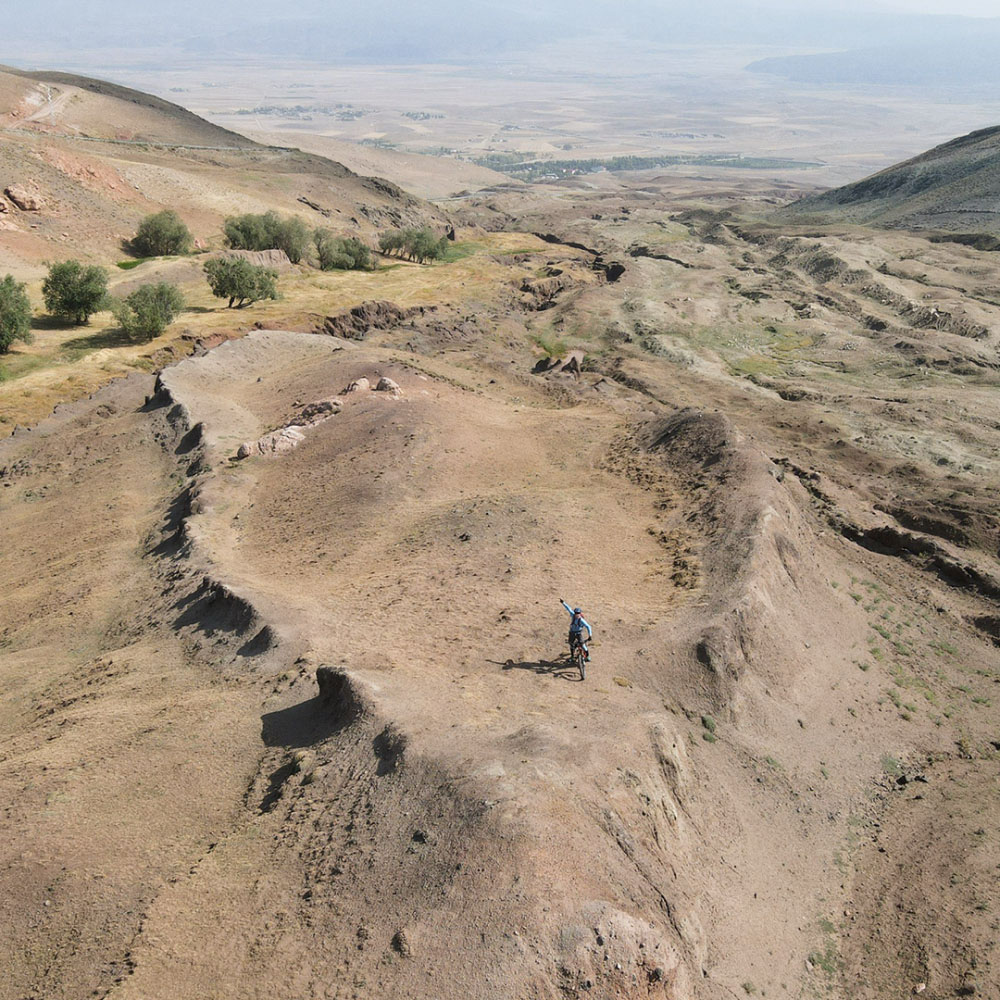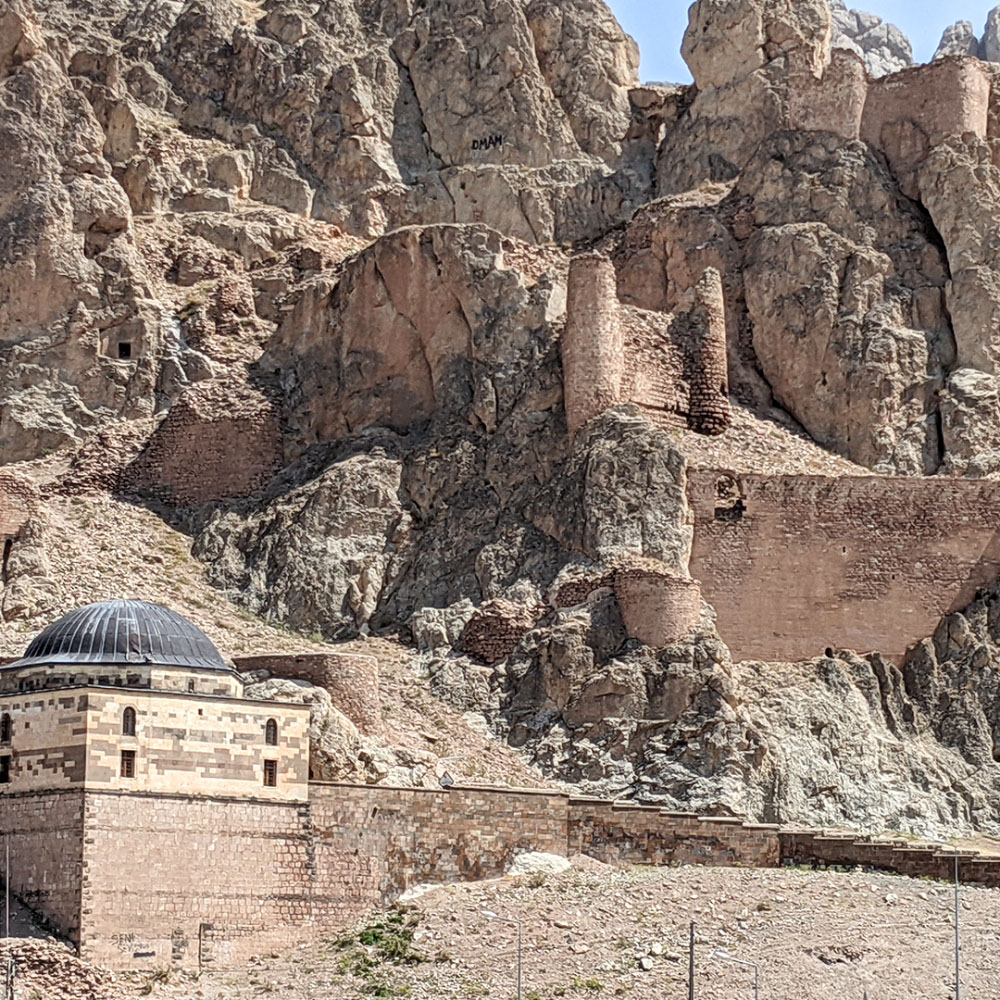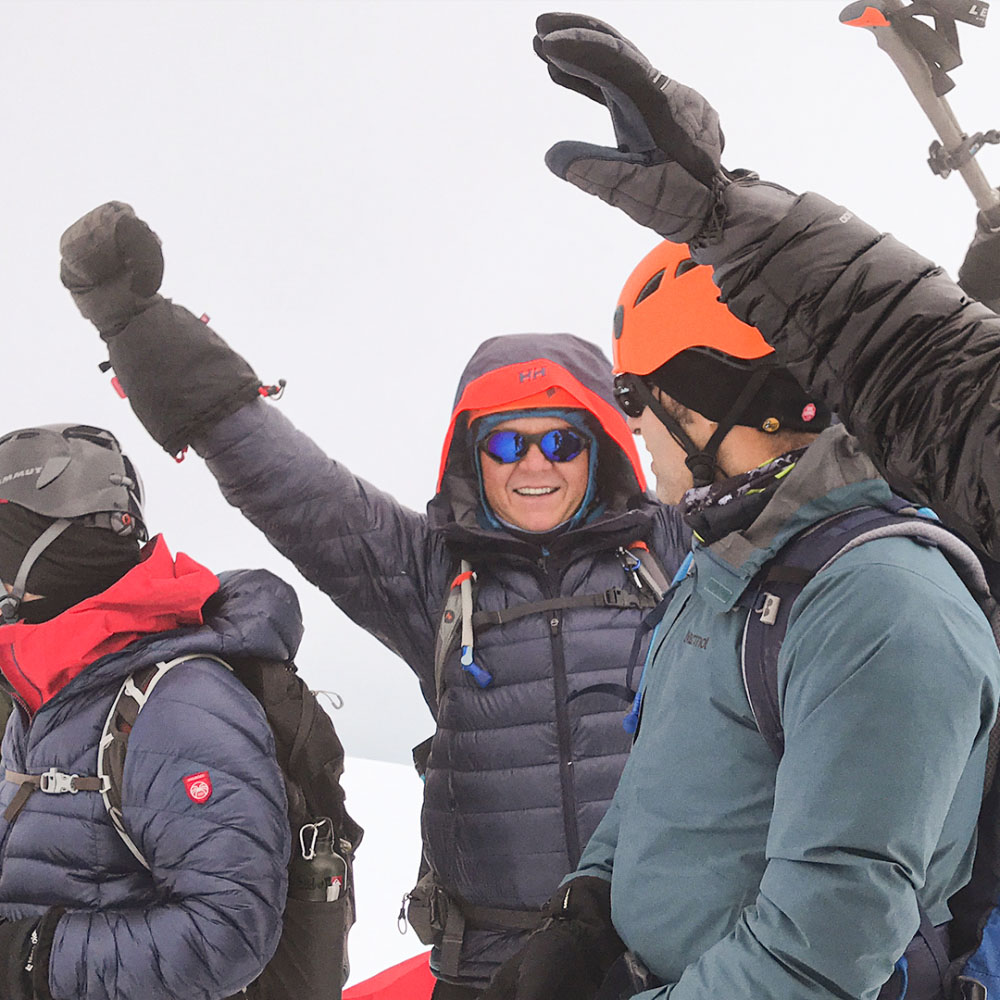
The Land of Noah: What I learnt from climbing Turkey’s highest peak
"It’s always further than it looks. It’s always taller than it looks. It’s always harder than it looks.“
There is a reason why every culture adores the story of Noah’s Ark.
It is a story that combines punishment and reward; provides a way out, a way to reset. It allows children and adults to understand that at times of bad behavior, there will be repercussions. But for a lucky few, there may be new beginnings.
This story repeats itself in all religions. There have been claims that the flooding which forced Noah to build his ark may have resembled an actual natural event, but scientists often agree that a flood that size never occurred. Noah’s tale isn’t the only one—we often search for ways to make our stories resemble the truths we believe we have encountered. Sometimes that is the case, and sometimes, it is not.
In August 2021, with a diverse group of 16 Arçelik team members, we decided to take on Mount Ağrı as the latest challenge in our series of expeditions to raise awareness of the climate crisis. Starting with Kilimanjaro in Africa a decade ago, our expeditions in Elbrus, Aconcagua and Everest all had the same core purpose.
Located in Northeastern Turkey, Mt. Ağrı is Turkey’s highest peak. Standing at 5,137 meters, it is home to the largest glacier in Turkey and is a reliable water source in the drier seasons. The first successful expedition to its peak was made in 1829, by naturalist Friedrich Parrot and writer Khachatur Abovian.
Also known as Mount Ararat, it is fabled to be the resting place of Noah’s Ark that carried his family and the animals to safety after the great flood.
When we first sat down to decide on our next challenge, you could see how fed-up and worn-out we were after being locked-up due to the pandemic. There was a common longing to be active and immersed in nature.
The ultimate purpose we had set out to achieve in our Ağrı expedition was to find a way to reconnect with nature, and encourage others to protect and appreciate our planet. Some of the team members had little or no experience in mountaineering but our mission was to highlight that with a clear goal, a diverse team, and perseverance anything could be accomplished.
After Everest, I was thrilled to be back on mountains, I knew the journey would be unique but I had no idea how nurturing, eye-opening and demanding it would be.

My journey began right where the ancient tales place the remnants of Noah’s Ark. As an avid cycler and an enthusiast of clean energy, the endless terrain of Ağrı provided me a good opportunity to ride an e-bike, powered by solar energy, for 50 kilometers up to our camp at 3,200 m where I met up with the rest of the team.
With the imminent climate crisis, we need to shift to cleaner options. A key strategy to do that is to cut down emissions —carbon emissions from the transportation sector alone is set to double by 2050. These emissions are linked to 400,000 deaths every year. In a bid to highlight cleaner modes of transport, I opted to start out the journey by riding an e-bike for a part of the route.
The way you experience a terrain teaches you a thing or two. On that bike, I got to see Ağrı and its natural beauties in an entirely new light. The physical difficulty of the challenge pushed my limits of endurance, and my appreciation of nature. Riding on a piece of innovative technology that is likely to soon dominate our lives, I crossed lava fields and villages that were thousands of years old.

A highlight of my time on the mountain was coming across İshak Paşa Palace. A standing monument of Ottoman architecture. This gorgeous, vibrant beauty harkened back to days of glory on the mountain.
Before the heat rose and the conditions worsened, the whereabouts of İshak Paşa was the heart of trade and culture; inhabited by people living their lives and making their livelihoods— like you and I. What happened? Well, climate change happened. Those places of joy and bounty soon dried up and hollowed out.
It was a clear message simultaneously from the past and from the future—get your act together and save the planet or suffer the consequences. Do not rely on your cities now— Istanbul, London, Munich, Tokyo—they may all one day turn into empty ruins.
Lessons from the summit
As you climb higher, beaten by hail and stormy weather, you become more and more in awe of the natural beauties that surround you. And yet amid all the beauty, you see the human damage. We could barely observe glaciers until 4,000 meters and came across dozens of plastic bottles, cups and trash that were abandoned on the mountain. It broke my heart to see that what nature has so wonderfully created, we do our best to destroy. It was a reaffirmation of how right we were to take on this journey.
The summit push was tougher than my expectations. We woke up in the middle of the night and hiked step by step from the 4,200m camp to the summit while it was still dark. The panorama up there was fascinating, but you need to overcome a mental battle on the icy paths as the air gets thinner on higher altitudes. Our team successfully summitted in two groups.

This summer, the climate crisis has made itself increasingly visible through extreme weather events like wildfires and floods in Turkey, and across the world. With the pandemic and lockdowns, we lost our connection to nature. And for us, Ağrı was a long-awaited journey into the heart of nature; where we learnt lessons on fostering teamwork, pushing our boundaries, and protecting our planet.
We hold Noah’s story dear for a reason: we want to think that when the time comes, we can press a red button and reset the entirety of the planet; and pretend like our behavior—the true culprit of all our distress—can be erased overnight.
There is no button to reset destruction. Nature has a great capacity to renew itself, but never to its full splendor. The chinks in its armor continue to threaten its existence, and ours.
Yet unlike Noah, we have a choice. Through small and big acts, we can bring ourselves and our planet to a place where a great reset will no longer be needed.
Ağrı taught me that the harder the challenge, the stronger the bond becomes. If we can learn to act together, with openness and drive, to rise above meager profits and aim at something higher—we can keep our homes, our lives, our planet as they are: vast, beautiful and giving.
